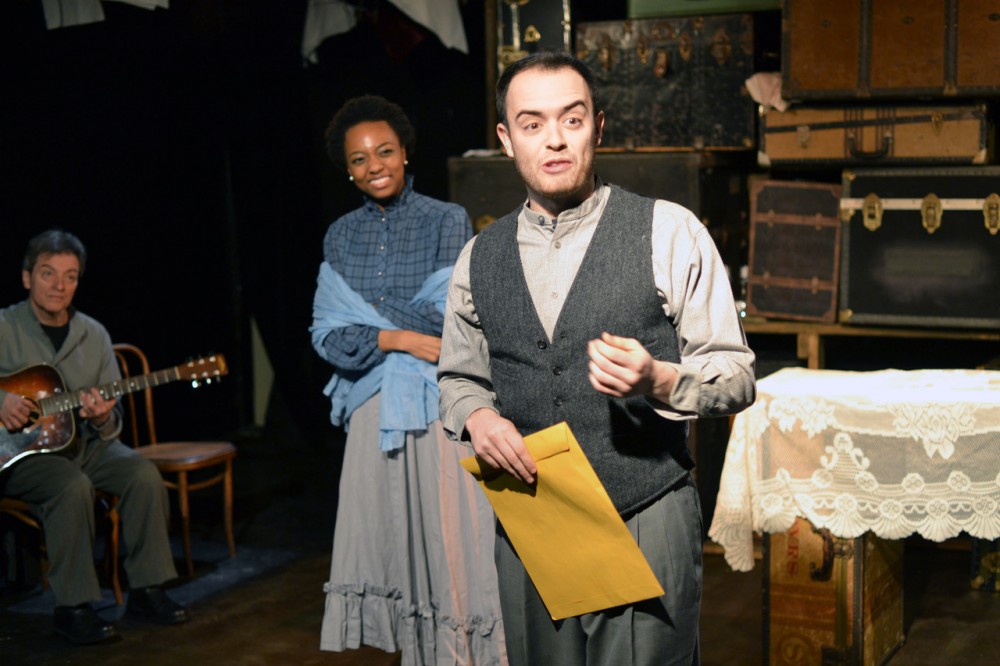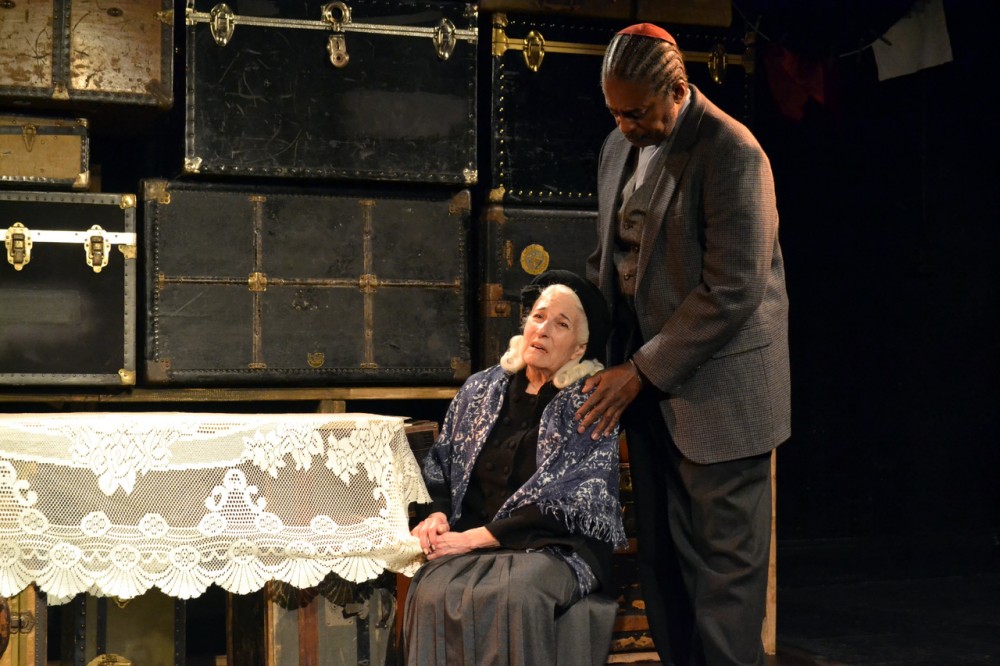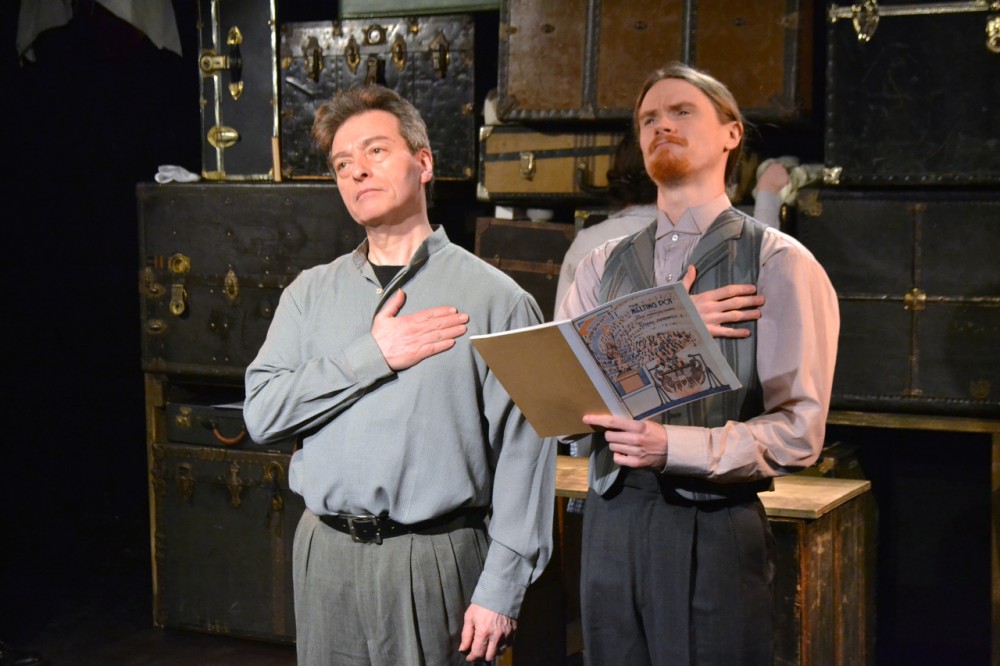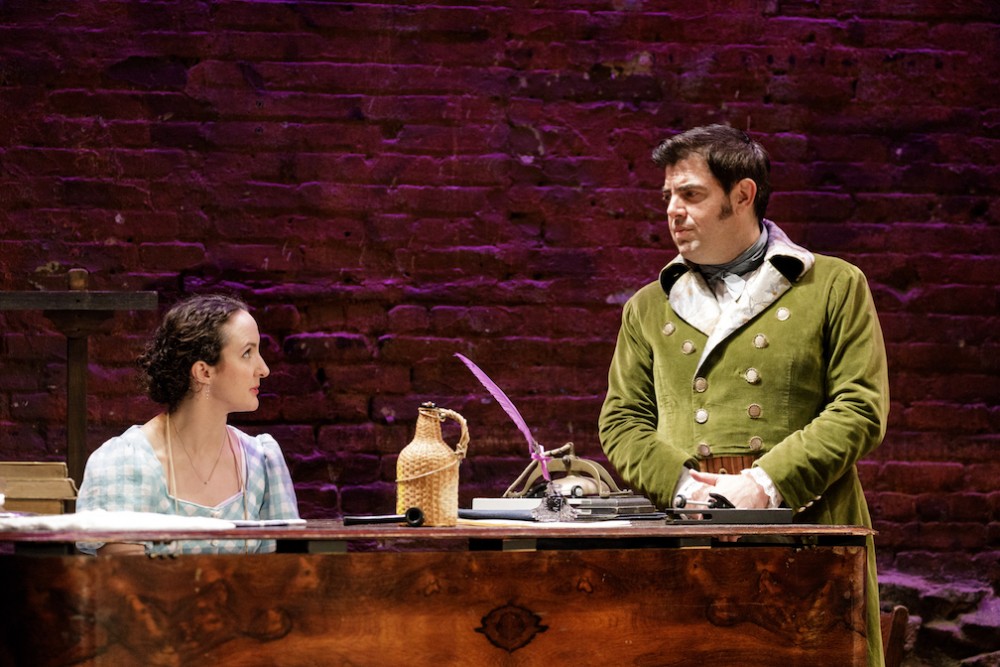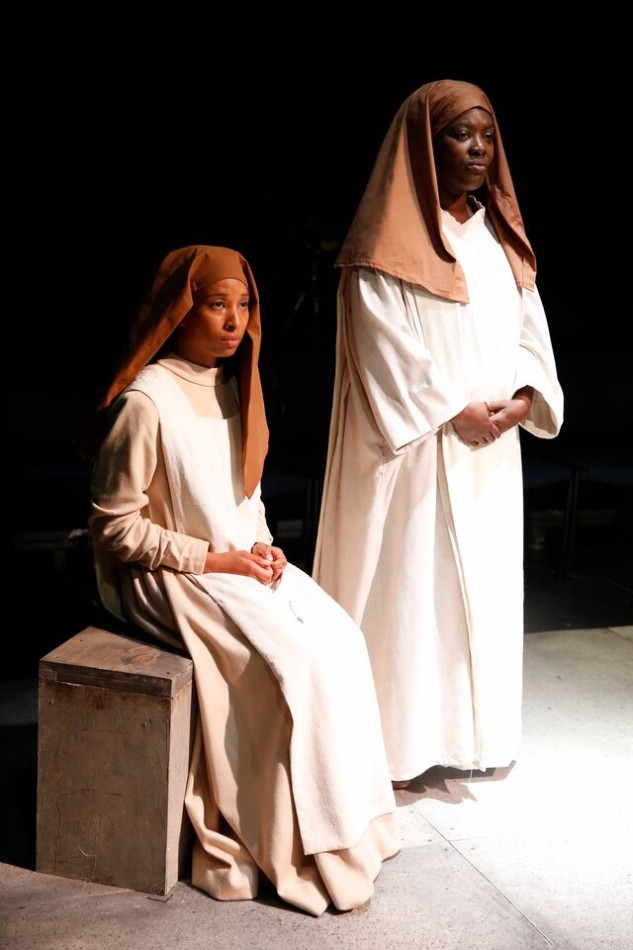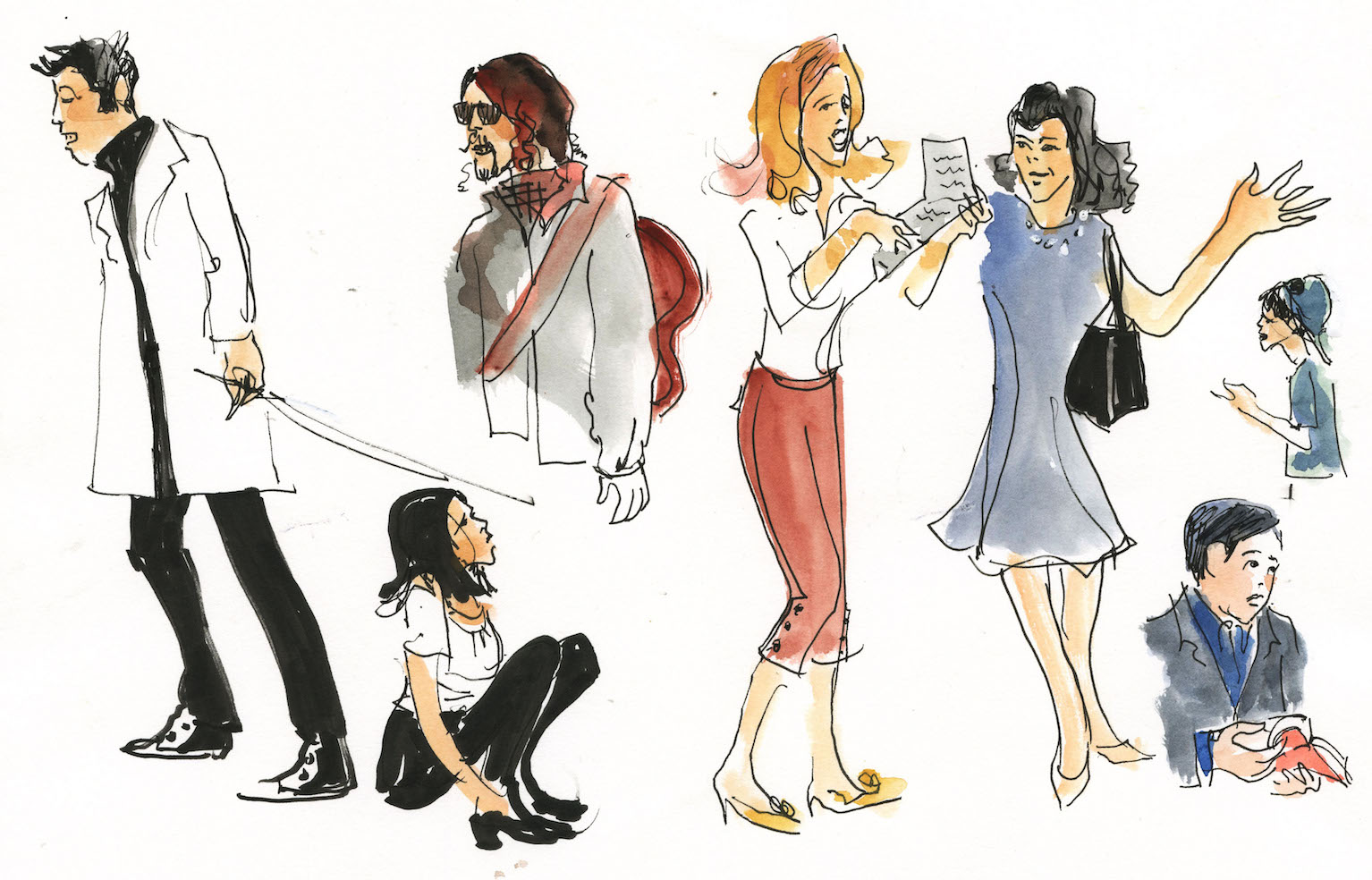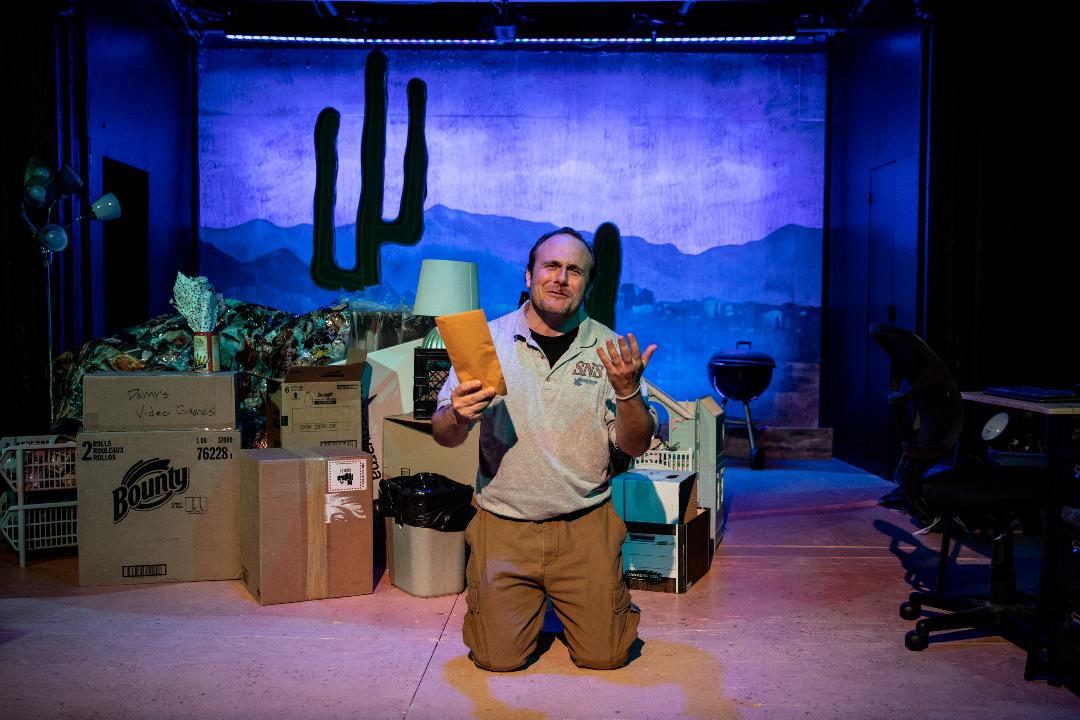by Cathy Hammer
At its heart, The Melting Pot is a Romeo and Juliet style love story, if Romeo were a Russian Jew who had escaped the pogrom and Juliet the aristocratic daughter of the man who helped orchestrate the massacre. Both now live on the Lower East Side of New York where Vera works at a settlement house and David writes music and plays the violin. They meet when David performs a concert for Vera’s residents at her request. Though clearly attracted to one another, they are pushed apart by the prejudices taught to them by their elders. Vera’s father is so opposed to her marrying a Jew, he would prefer she be matched with the wealthy Mr. Davenport, who inconveniently already has a wife.
As the foundation for this piece, playwright Carol Lashof updated 1908’s The Melting Pot by Israel Zangwill — which was extremely popular and helped that phrase become part of everyday jargon. Lashof has added bits of the original to her modern perspective that all-too-easily shines a light on our current social struggles and uneasy political climate. Are immigrants a threat to who we are or essential to our identity? While not nearly as artful as the similarly structured Indecent by Paula Vogel, there is a relevancy to the way Lashof explores this core question that more easily stimulates post-show reflection.
David is not as fiercely religious as his uncle or grandmother, but he is proud of his past and the family he lost. His internal struggle becomings more poignant when he encounters Vera’s masked anti semitism. David and Vera had widely different upbringings and want to stay connected to those roots, but they also find common ground in their deep love of being able to call themselves Americans and excitement to explore what that truly means.
David and Vera’s romance is enhanced by a Greek chorus seated on each side of the stage. Their chants provide background material, give stage directions, and share reviews of Zangwill’s play. These same actors portray the other characters including David’s uncle and grandmother and Vera’s father and suitor. Underneath the dialogue is a light musical layer created by a guitar and a banjo. Off to one side is Nurse who throughout the performance describes the pogrom in Odessa in terrifying and bloody detail. It’s a shocking history, but it never blends smoothly with the rest of the storylines.
The cast is composed of 8 diverse actors, as outlined in Ms. Lashof’s own recommendations. It’s a clever concept even if this particular ensemble isn’t always up to the challenge. The charming Matt DaSilva displays sheer exuberance to the role of David Quixano that gives the production essential warmth. Less successful is Ty Gaines who tries too hard to find Vera’s delicate balance of determination and sweetness. Also not quite at home in his role is Franz Jones who lost several of David’s uncle Mendel’s lines. Music is provided by Isaac Allen Miller who also channels Crispin Glover to brings a little creepiness to benefactor Quincy Davenport. Strumming along is the talented John Blaylock, who doubles as the gruff and elegant Baron. Maya Jasmin does her best to give variation to the long gruesome story related by The Nurse. Rochelle Slovin, who returned to acting 7 years ago after a long career in fine arts, is too shrill and often hard to understand as David’s grandmother. Rounding out the team is the cheery Talia Reich who also lends her liveliness to the Quixano’s Irish maid, Kathleen.
The movement of the actors as directed by Alex Keegan is almost like a dance; they rise to take their “twirl” in the center and then return to the side in support of the next piece of action. A wall of steamer trunks and battered suitcases form Matthew S. Crane’s backdrop that suggests both promise and foreboding. It is enhanced by the delicate lighting designed by Ali Hall. Anais Koivisto’s costumes are a mixed bag, with David and Vera’s wardrobe nodding slightly to the period while others look like the Goodwill donations and treasures from the actors’ personal wardrobes that they might very well be.
Carol Lashof’s The Melting Pot is a thought-provoking opening to Everyday Inferno’s 2018 season, which will continue to explore the theme of “going home”. There is clearly hope that another incarnation of this promising work is not far off.
The Melting Pot — Access Theater, 380 Broadway near Canal Street in New York. Runtime is 70 minutes with no intermission. General Admission Tickets are $18. Ends Saturday, March 24.


